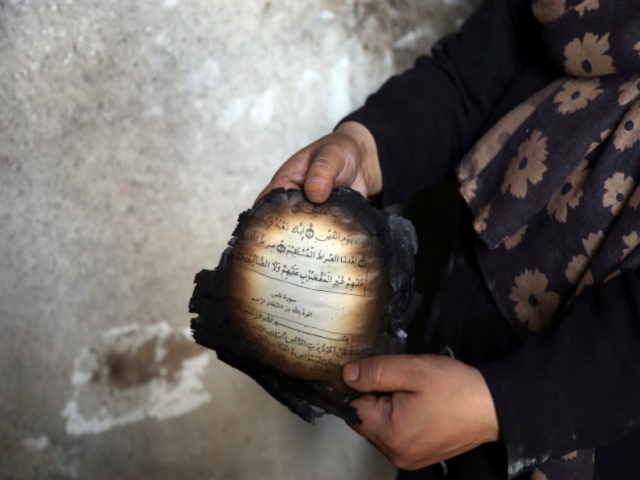Pakistani police have charged three young Christians with blasphemy after local Muslims purportedly found burned pages of the Quran, the Christian Post reported Saturday.
Police from the Punjab Province arrested Azeem Mehmood on December 25 and then arrested Abbas Gulshan and Irfan Saleem on December 29.
The three Christians were formally charged with blasphemy on December 30. Mehmood, who is a member of the Pakistani Army, was sent to judicial custody while the other two Christians were released on bail.
On Christmas day, a large number of police interrupted a procession at the local United Presbyterian Church in the village of Kotli Muhammad Sadique, saying they had received a complaint that someone had burnt pages of the Quran near some Christian homes. There are about 40 Christian houses in the vicinity.
Local Muslims claimed they had found in the area the burned pieces of a blue letterbox, which had been installed on the wall to collect pages containing verses of the Quran.
That same day, a “large angry mob of Muslims from surrounding villages” gathered in Kotli Muhammad Sadique, demanding the immediate arrest of all Christians, the Christian Post stated.
Nasir Saeed, U.K. director of the Centre for Legal Aid, Assistance and Settlement (CLAAS-UK), said his group’s Pakistan-based team had interviewed the families of the three men and were convinced of their innocence, adding that the men were likely accused because of personal grievances.
“It is very sad that blasphemy continues to be used as an easy tool to settle personal scores and grudges against Christians and other religious minorities,” Saeed said. “Unfortunately, Pakistani society has become more intolerant than ever before.”
Local Christians believe police tortured a Christian named Ilyas Masih to force him to confess to having seen the faces of the three Christians in order to arrest them.
Elsewhere in Pakistan, on the day after Christmas, a Christian pastor named Raja Warris, from the Charar area of Lahore, was also arrested on charges of blasphemy after allegedly posting comments on social media critical of Islam.
A Muslim mob reportedly gathered outside Warris’s home and threatened to behead him and set fire to Christians’ homes unless the police arrested him, leading to hundreds of Christians fleeing Charar.
Warris was formally charged on December 27 and if convicted, could face up to ten years in prison for committing “deliberate and malicious acts intended to outrage religious feelings.”
“Pakistan’s blasphemy laws must not be misused to justify mob violence,” said William Stark, the regional manager of International Christian Concern in regard to the case. “Too often these laws have been a tool in the hands of extremists seeking to stir up religiously motivated violence against minority communities.”
Pakistan’s blasphemy law is often misused for personal revenge, and it contains no provision to punish someone who falsely accuses another of blasphemy.
In an address at the United Nations General Assembly last September, Pakistani Prime Minister Imran Khan urged the universal outlawing of criticism, mockery, or other expressions deemed offensive to Muslims.
Khan called for the creation of an international day against “Islamophobia,” asserting that the Wuhan coronavirus pandemic had “accentuated” discrimination against Muslims.
The week before, a Pakistani court sentenced a 37-year-old Christian man from Lahore, Asif Pervaiz, to death for allegedly sending “blasphemous” text messages, which the man denied.
Pervaiz’s lawyer declared that Pervaiz never spoke ill of Islam but, rather, politely rejected his boss’s demands that he convert to the faith.

COMMENTS
Please let us know if you're having issues with commenting.